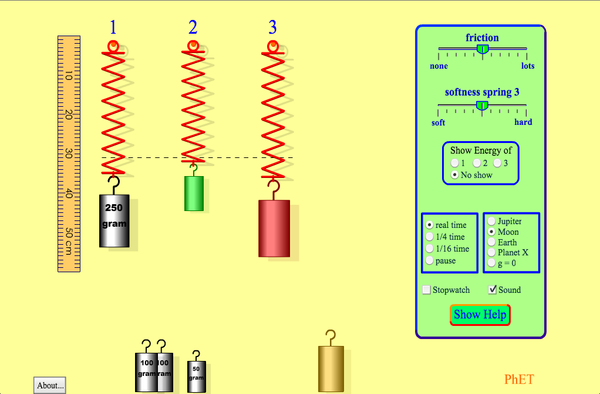- Set Friction to 0
- Lab is to be carried out in your notebook.
- WARNING :
- (You may not submit your lab without corresponding entries in your notebook)
- Date and time entries when you performed the experiment
- Sketch A Graph of (More than one graph may be done in a single sketch providing there is a key listed)
- Position
- velocity
- acceleration
- force
- KE
- Angular Frequency along with its corresponding value
- List any key ideas (models/equations)
- Determine the mass of the unknown Bobs
- Red
- Green
- Gold
DUE MONDAY MARCH 6

When it asks for velocity and acceleration, is it the linear v and a or the rotational? Also do I only sketch the graphs for the colored masses or all of them?
ReplyDeleteHey Bradley, I'm trying to not over complicate this lab, I'm gonna say it's not rotational due to it being linear motion... but I'm not 100% sure of that because of the angular frequency.
DeleteDid anybody figure out how to graph angular frequency?
ReplyDeleteHey Ursula, the equation is on wikipedia for angular frequency! it's ang. freq.=2pi/period=2pif. f is the oridnary frequency! Because a period is the time for one cycle of the spring it can be used for your y axis! As always time goes on the x axis!
DeleteDoes anyone know if the F in hooke's formula is the force applied as in the F=MA for the weights? Everything I lookup isn't giving me a direct answer therefore I am so far rendered unable to find the numerical mass values... Thanks
ReplyDeleteIs the lab all due tomorrow, or are we going to discus it a little because I am still having issues with angular frequency and also for the graphs do we do all the weights or only chose one.
ReplyDeleteI'm a little confused on how many graphs we need and also the AF.
DeleteA^3
Delete